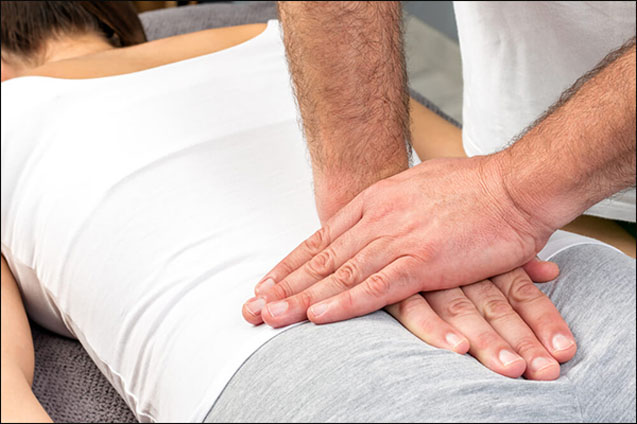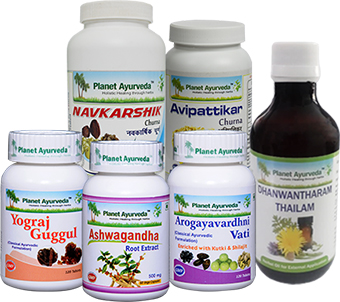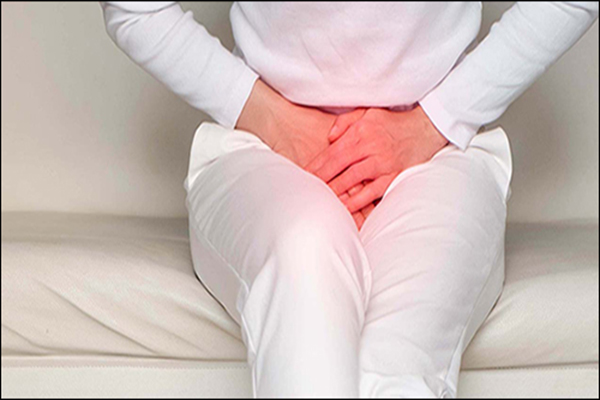Alternative Treatment of Levator Ani Syndrome
Abstract
In general practice anorectal problems are common, sometimes general physician encounters with the anorectal problem without any known cause. The presentation and differentiation of structural and functional rectal pain is difficult. One such syndrome is levator ani syndrome in which pelvic floor dysfunction can be found in every patient. This syndrome is more common in women than men. In this article we will discuss the levator ani syndrome, its clinical features, diagnosis and its treatment as per ayurveda.
Introduction
Levator ani is a complex funnel-shaped structure mainly composed of striated muscles with some smooth muscle components. It is located on either side of the pelvis and thus provides a path to pass various pelvic structures and give them support. It is formed from the confluence of three muscles – puborectalis, pubococcygeus, and iliococcygeus muscles. Nerve supply to the levator ani is through somatic nerves from the sacral plexus (pudendal nerve), the nerve of levator ani muscles, and automatic nerve from the hypogastric plexus. Levator ani syndrome is considered to be a subtype of pelvic pain. It is characterized by prolonged anorectal discomfort/pain due to unknown causes. The prevalence of this syndrome is not known but only 2-4% can be quoted.

What are the causes of levator ani?
The exact cause of levator ani is unknown but the chronic tension on pelvic floor can cause levator ani syndrome. It can be related to following:
- Not urinating or passing stool when you need to
- Vaginal shrinking
- Pain in vulva
- Trauma
- Chronic pelvic pain
CLINICAL FEATURES
- Pain high in the rectum
- Chronic burning pain
- Referred pain to the thigh and buttock
- Spasm and pain – pelvic floor muscle
- Discomfort
- Pain lasting for 20 minutes
- Dull ache
DIAGNOSIS
Anorectal pain is very difficult for patients as well as in diagnosing by the physician. Laboratory tests are not given for this condition. It is basically a collection of symptoms and findings. It can be only diagnosed from the clinical features which are present in the patient.
Differential diagnosis
Anorectal pain has subdivided into functional and non functional ano conditions. Non functional anorectal conditions which are convergent with the levator ani syndrome are as follows
- Anal cancer
- Anal fissure
- Anal abscess
- Rectal ulcer
- Prostatitis
AYURVEDIC VIEW
Levator ani can be correlated to khali vata in Ayurveda. This disorder is caused due to vitiation of vyana vata and because of that it results in muscular pain. In this involvement of ama caused muscular spasm. In ayurveda many diseases were given which do not have any particular cause like this levator ani syndrome.
HERBAL REMEDIES BY PLANET AYURVEDA FOR LEVATOR ANI SYNDROME.
Planet Ayurveda has been treating patients with different diseases and disorders for many years. Many patients from all over the world are in contact with Planet Ayurveda and getting benefits regarding their health issues. Due to drawbacks of allopathy medicine and other reasons patients come here and get better results than any other treatment. Planet Ayurveda has many products for treating this syndrome like Avipattikar churna, yograj guggul etc. These products are ISO certified they do not have any added preservative and adulterant i.e they are more beneficial in the treatment. These products do not have any kind of side effects. Let’s have a look on these amazing products:-

1. Avipattikar churna
This herbal formulation is one of the most popular ayurvedic formulations. Its main contents are Pippali (Piper longum), Nagarmotha (Cyperus scariosus), Tejpatra (Cinnamomum tamala) etc. Avipattikar churna has properties like antisecretory and anti ulcerogenic. In levator ani syndrome patients have burning pain so this will be helpful in it.
Dosage – 1 teaspoonful twice daily with lukewarm water
2. Yograj guggul
Yogaraj guggul is useful in treating accumulated vata in the joints and muscles, particularly sandhigantavat. Its main contents are:Guggul(Commiphora mukul), Dhaniya(Coriandrum sativum), Dalchini(Cinnamomum zeylanica)etc It has been used in musculoskeletal disorder that is why it will benefit the patient of levator ani syndrome. It also have property like analgesic and anti-inflammatory
Dosage – 1-2 tablets twice or thrice daily with lukewarm
3. Arogyavardhini Vati
The word arogya means good health and vardhini means improver. It means this vati will improve good health. This is used in balancing the three doshas. These doshas are responsible for every disease that occured. Its main ingredients are Haritaki (Terminali chebula), Bibhitaki (Terminalia bellerica), Asphaltum (Shuddha shilajit) etc. This traditional formulation has been useful for centuries in treating disease with efficacy. This is useful in treating many diseases like liver disorders, cardiac disorders.
Dosage – 1-2 tablets twice d aily with lukewarm water
4. Navkarshik churna
It helps in increasing the immunity. Its main contents are as follows: Vacha(Acorus calamus pennel), Manjistha(Rubia cordifolia), Katuki(Picrorhiza kurroa) etc. It also acts as antibacterial, antifungal and anti inflammatory.It has analgesic properties in it so it gives relief in pain.
Dosage – 1 teaspoonful twice daily after meals with plain water.
5. Dhanwantharam Thailam
Dhanwantharam thailam is used in the treatment of vata disease. Its contents are as follows: Bala moola(Sida cordifolia), Dashmoola(Aegle marmelos), Brihati (Solanum indicum) etc. It can be used in the form of massage and also in ayurvedic treatment like dhara, basti treatment etc. It also relieves pain after post fever and muscular pain.
Dosage – Apply gently on the site of pain and leave it for 6-8 hrs
6. Ashwagandha capsule
This ayurvedic medicine is used in the treatment of stress, anxiety, insomnia, neuromuscular disorder, depression, etc. It improves strength, and immunity and acts as a rejuvenating agent. Ashwagandha(Withania somnifera) is also known as Indian ginseng. Ashwagandha helps in strengthening and toning all muscle tissue. It is very helpful in muscular aches, pain, and stiffness.
Dosage – 1-2 capsules twice daily with plain water after meals.
CONCLUSION
Contact Planet Ayurveda to provide you the costing / ordering and delivery information at – costing.planetayurveda@gmail.com or call at +91-172-5214040 Or Check Website – www.PlanetAyurveda.com
Levator ani syndrome is chronic functional anorectal pain with chronic hypertonia of the pelvic floor muscles. In this disorder the treatment given to patients by allopathic physicians is not efficient because of this they are also advising ayurvedic therapeutic procedures like a sitz bath, massage etc. Ayurvedic medicine treatment is very effective on this and managed properly. This can be treated right only when diagnosed correctly and treated by the physician who has pronounced knowledge of ayurvedic medicine otherwise it gets complicated.





